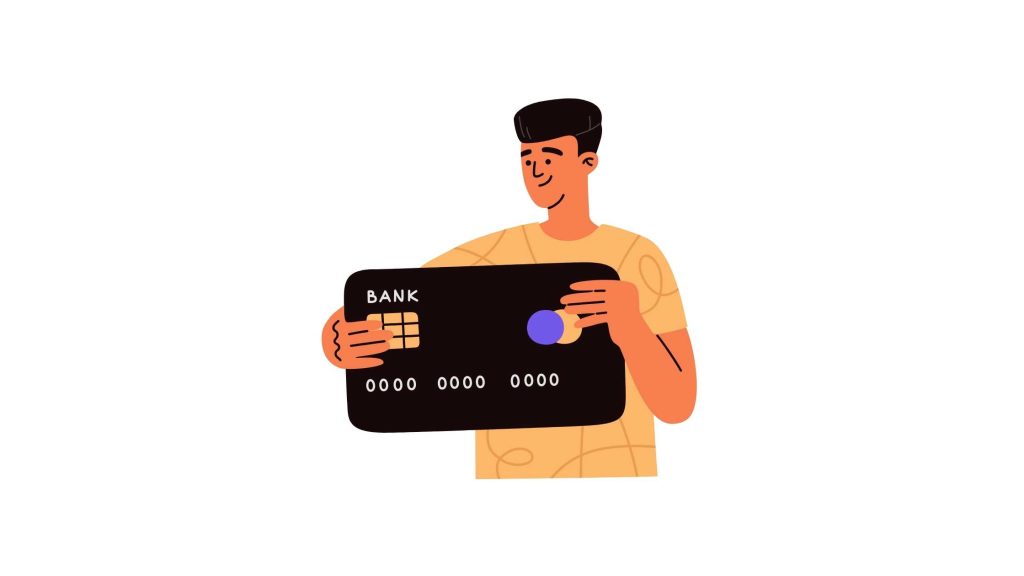Missed Credit Card Repayments? Interest is Charged on Late Payments : Comprehensive Guide 2024
Credit Card Repayments : Credit card usage has surged in recent years, becoming an essential tool for many. From daily purchases to larger investments, credit cards offer flexibility and convenience that is hard to overlook. Yet, while making purchases with a credit card has become second nature for many, managing repayments can sometimes be overlooked. The nature of credit cards is rooted in borrowing; each purchase is, in essence, a small loan. When monthly repayments are missed, the situation becomes more complicated, as interest and arrears begin to accrue.
Table of Contents
This can quickly escalate, affecting personal finances, credit scores, and future lending options. A closer examination reveals the importance of understanding how credit card repayments work, the impacts of missing these payments, and how various banks charge interest on overdue amounts. Through a deeper look into seven banks’ specific interest charges and rates, we can shed light on the importance of timely repayments and the often-overlooked consequences of late payments.
Also Read : 400 Day Fixed Deposit : Best Bank Options for High-Interest Returns
When a credit cardholder misses a monthly payment, the bank doesn’t just issue a simple reminder. Instead, the unpaid balance is considered arrears and will be subject to interest charges. Credit card companies usually charge high-interest rates on outstanding amounts, which can lead to the rapid accumulation of debt if left unchecked. Unlike personal loans, which have a defined interest rate and term, credit card interest is often applied daily to the unpaid balance, compounding over time.
Each bank sets its interest rates for late payments, which vary based on the type of card, the cardholder’s creditworthiness, and sometimes promotional offers. Understanding these rates can provide insight into the true cost of late payments, giving cardholders an incentive to manage their debt responsibly.
1. HDFC Bank: Interest Charges on Late Credit Card Payments

HDFC Bank, one of India’s largest private sector banks, has a robust credit card system that caters to various demographics. With HDFC credit cards, late payments come with a steep interest charge of up to 3.4% per month. This figure might appear small at first glance, but when calculated annually, it equates to a substantial amount. This additional charge highlights the bank’s intent to discourage late payments, prompting users to prioritize timely repayments to avoid these high costs.
For HDFC cardholders, this 3.4% interest rate can quickly add up, especially for those carrying significant balances. A missed payment doesn’t merely attract interest on the overdue amount; it sets a precedent for subsequent late fees and interest, further inflating the debt. HDFC’s interest rate structure serves as a reminder for cardholders to remain vigilant about their payment schedules.
2. ICICI Bank: An Interest Rate of 3.75% on Delinquent Payments
ICICI Bank offers a variety of credit cards, each catering to a specific customer segment. With ICICI Bank credit cards, a missed payment results in an interest charge of up to 3.75% per month on the outstanding balance. This rate, slightly higher than HDFC’s, reflects the bank’s approach to encouraging disciplined repayment behavior. This added interest is significant, as a high balance that goes unpaid can lead to a spiraling debt cycle. Each month, as new purchases are added and previous balances remain unpaid, interest compounds, making it challenging for the cardholder to regain control of their finances.
The effect of this 3.75% monthly charge is particularly profound for customers who may struggle with making consistent payments. For such individuals, it becomes increasingly difficult to pay off the principal balance, as a large portion of each payment goes toward interest alone. By enforcing this higher interest rate, ICICI Bank reinforces the importance of timely repayments and responsible usage.
3. Kotak Mahindra Bank: A Monthly Interest Rate of 3.5% on Overdue Amounts
Kotak Mahindra Bank, another prominent name in the Indian banking sector, levies a 3.5% interest rate per month on late credit card payments. This rate may appear slightly lower than ICICI’s, but the cumulative effect is still substantial. For Kotak cardholders, missed payments don’t just incur a monthly interest charge; they also attract additional late payment fees, adding another layer of financial burden.
A 3.5% monthly interest rate accumulates over time, leading to an annual rate that can exceed many standard loan interest rates. For consumers, the cost of carrying a balance from month to month can become overwhelming. This high interest rate serves as an incentive for cardholders to settle their dues promptly, ensuring that they avoid further debt accumulation and maintain a manageable credit profile.
4. Yes Bank: High Monthly Interest of 3.8% on Late Payments

Yes Bank’s approach to handling late payments involves a steep monthly interest rate of 3.8%, particularly with its Elite+ card. This translates to an annual percentage rate (APR) of 45.6%, underscoring the high cost of missed payments. For Yes Bank customers, this interest rate structure makes it essential to prioritize credit card payments over other financial obligations to avoid excessive fees.
For those carrying substantial balances, Yes Bank’s 3.8% monthly interest charge can result in severe debt escalation. This figure is one of the highest among major Indian banks, reflecting the serious financial impact of overdue payments. Cardholders who struggle to make even the minimum payments will find themselves in a challenging position, as the high interest rate compounds their debt at an alarming rate.
5. SBI Card: 3.5% Monthly Interest Rate with Compounded Penalties
The State Bank of India (SBI) has a significant presence in the credit card industry, providing various options for different income brackets. SBI Card imposes a 3.5% interest rate per month on overdue balances. This figure may appear similar to other banks, but SBI’s policy is notably stringent when it comes to late payments. From the date of the original transaction, the interest begins to accrue, meaning that delays in payments lead to immediate cost increases.
SBI’s approach ensures that customers recognize the importance of timely repayment, as the consequences of delay are immediate. Cardholders who miss a payment deadline not only face a high monthly interest rate but also deal with the compounding effect of missed payments over time. This structure serves as a strong motivator for SBI cardholders to manage their finances carefully and avoid accruing high-interest debt.
6. PNB Credit Card: An Interest Rate of 2.95% on Outstanding Balances
Punjab National Bank (PNB) offers a slightly lower monthly interest rate of 2.95% on unpaid balances, equivalent to an annual rate of 35.89%. Although this is one of the lower rates among major banks, it remains significant enough to impact cardholders who delay payments. For those who miss multiple payments, this interest rate still leads to a rapid increase in the total amount owed.
PNB’s interest rate structure, while somewhat more lenient, does not absolve cardholders from the responsibility of timely repayment. A 2.95% monthly interest rate can still create substantial debt for users who carry balances over extended periods. Therefore, even at this lower rate, PNB cardholders are encouraged to settle their dues as quickly as possible.
7. Axis Bank: A Monthly Rate of 3.6% on Late Payments
Axis Bank, known for its range of credit cards, enforces a 3.6% monthly interest rate on overdue payments. This rate adds to the financial burden of cardholders who fail to make timely payments, creating a significant deterrent against missed payments. With this interest rate, cardholders who carry large balances will find that their debt quickly grows if payments are not made on time.
In addition to the high interest rate, Axis Bank’s policies emphasize the importance of maintaining a positive credit history. Failure to meet repayment deadlines can lead to reduced credit limits, lower credit scores, and restrictions on future loans. For Axis Bank customers, managing credit card debt responsibly is essential to maintaining a strong financial foundation and securing future financial opportunities.
Credit Card Repayments – Conclusion

Credit cards have become essential financial tools, providing a convenient way to make purchases, manage expenses, and even earn rewards. However, their convenience comes with a responsibility: timely repayment. Missing even one credit card payment can lead to high-interest charges, additional penalties, and damage to one’s credit score, which may impact future financial opportunities. Each bank has its own policy for handling late payments, and while the specific interest rates vary, they are consistently high enough to serve as a deterrent. From HDFC’s 3.4% to Yes Bank’s 3.8% per month, these charges underscore the cost of delaying payments.
Buy Now : Ecommerce Website With 100 Products
Understanding these implications is crucial for credit card users. While each bank aims to balance customer convenience with financial responsibility, cardholders must actively monitor their spending and repayment schedules to avoid falling into a debt trap. Whether by setting up automatic payments, budgeting effectively, or understanding the fine print of their credit card agreements, users can prevent the potentially devastating effects of accumulated debt.
Ultimately, responsible credit card usage is not just about avoiding interest; it’s about building a positive financial future. By paying off balances on time and staying informed about each bank’s policies, cardholders can leverage their credit cards to enhance their financial flexibility and improve their creditworthiness, ensuring long-term financial health.
Keywords : Credit Card Repayments – Credit Card Repayments 2024 – Credit Card Repayments 2025 , Credit Card Repayments issues



